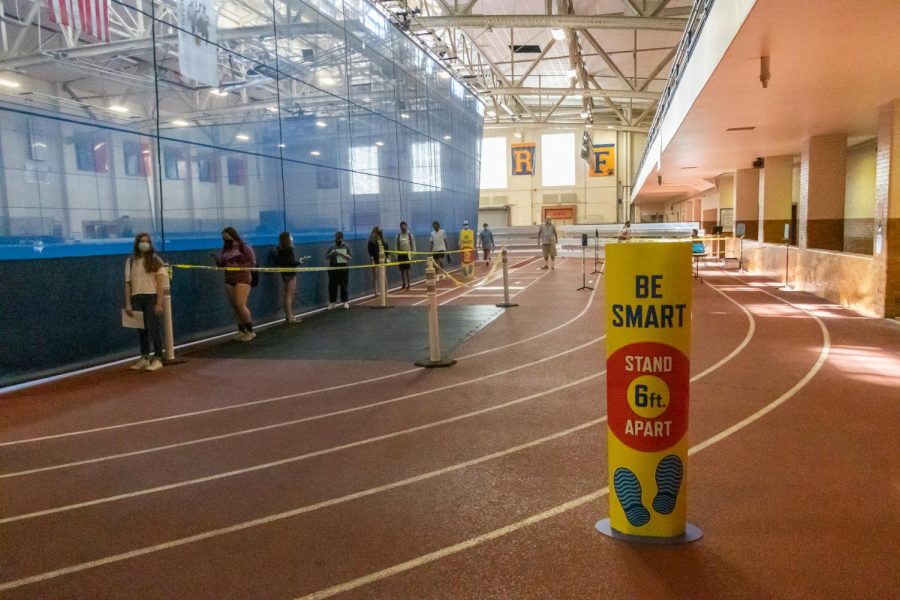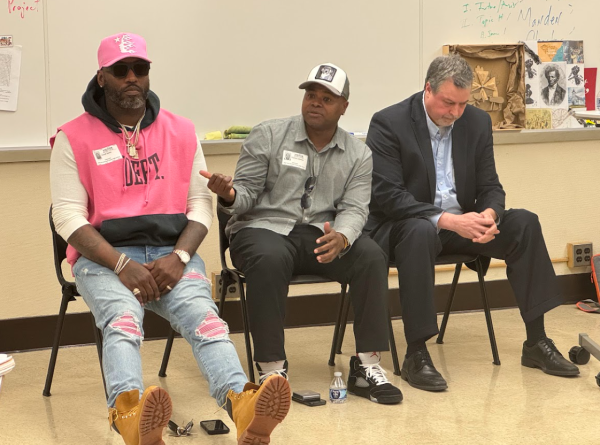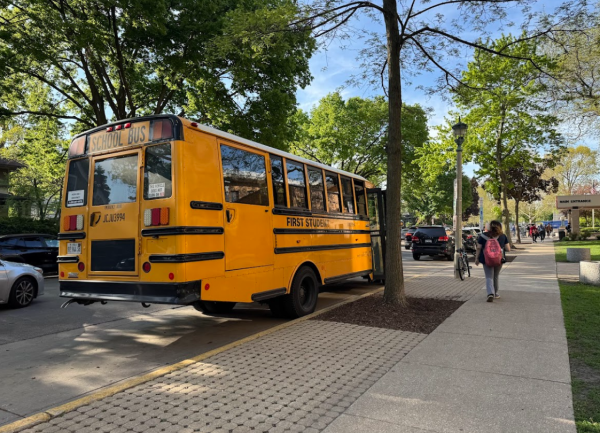Hybrid plans emerge for second semester
It has now been nearly nine months since OPRF first began online learning, but it seems there may be an end in sight. OPRF’s Board of Education approved a hybrid plan for the second semester on Dec. 3.

Under the plan, students will start the second semester continuing online learning. The earliest date that students who opt-in to hybrid learning may start receiving in-person instruction is Jan. 19.
Safety protocols will be in effect, including capacity limits, air filtration, cleaning, an app symptom screening, temperature checks, face coverings, and distancing between people.
Some students are struggling with online learning, which is one of the reasons the administration is working to switch to a hybrid format for the second semester.

“There are some of our students who are doing extremely well,” said Superintendent Dr. Joylynn Pruitt-Adams. “Then there are some who are struggling, who need that in person instruction and that additional support from their teachers.”
Sophomore Isabella Nache is one student who plans on opting for in-person learning second semester. Nache has said that remote learning has “not been going great.” She has had trouble asking teachers for help and with assignments being marked missing when already turned in.
Nache has also had issues with not being able to see friends, which has affected her emotional wellbeing. “I’m someone who thrives being close to people, and when my mental health personally starts to get bad, I like to fall back onto some friends,” Nache said. “I can’t do that stuck at home.”
On the other hand, senior Chase Thompson has concerns about students returning to school. “If they have people go back, I don’t think they can sustain social distancing practices very well,” she said. When asked about whether COVID-19 safety or other aspects of student wellbeing (such as social interaction or hands-on learning) were more important to consider, Thompson said, “I would argue that COVID would be more important because it can kill you.”
Math teacher Sheila Hardin shares similar concerns to Thompson. “You have to follow the safety protocols. Whatever we do, as we move to the hybrid, the safety protocols are paramount for the safety of our students and staff.”
Hardin also understands that the hybrid learning will be much different than normal in-school instruction. “Going back next semester wouldn’t be the same as what we left,” Hardin said. Even though hybrid may not be ideal, Hardin understands the benefits of the plan. “I don’t want to minimize that there’s benefits for some people in just being in the same room, perhaps,” Hardin said.
The school is using a company called CCS Technology to help with scheduling. According to Christopher Thieme, OPRF’s Executive Director of Educational Technology, the school looked at “a random assignment of students into four groups”, and found this would be problematic, since they are going for “an even distribution in classes”, a similar problem that other districts have faced. “CCS Technology was instrumental in the success of regional districts in grouping their students by applying advanced algorithms to the student schedules and aligning that to classroom capacities,” Thieme said.

“It is our hope that we can get back in, but the metrics will determine that,” Dr. Pruitt-Adams said. “It is going to take everyone wearing their mask, washing their hands, and practicing social distance on a regular basis, and right now that’s not happening.”
This story is being updated and we will continue to publish as we receive more information about the hybrid-learning model OPRF will employ. If you have any questions you would like The Trapeze to inquire to about hybrid-learning, please email our Editor-in-Chief Libby Eggert at [email protected]





